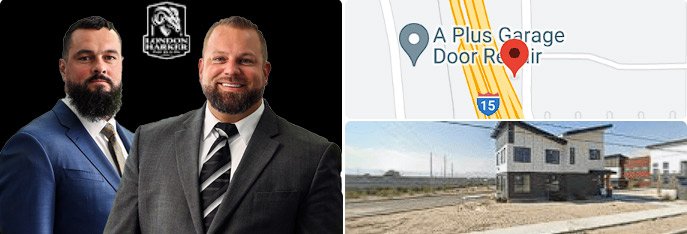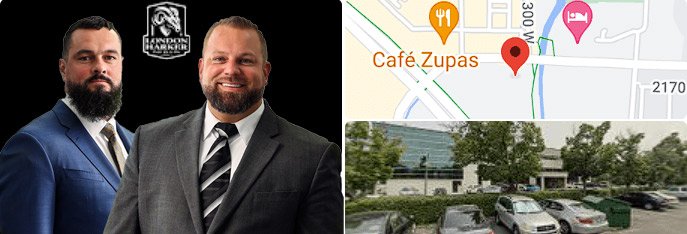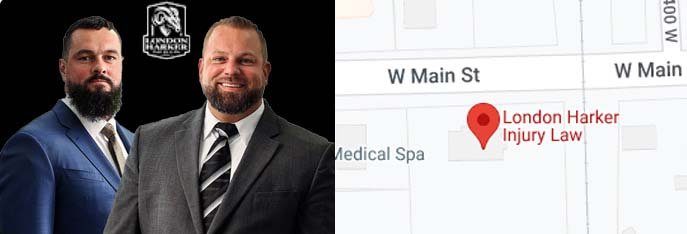Posted on Wednesday, April 10th, 2024 at 1:15 am
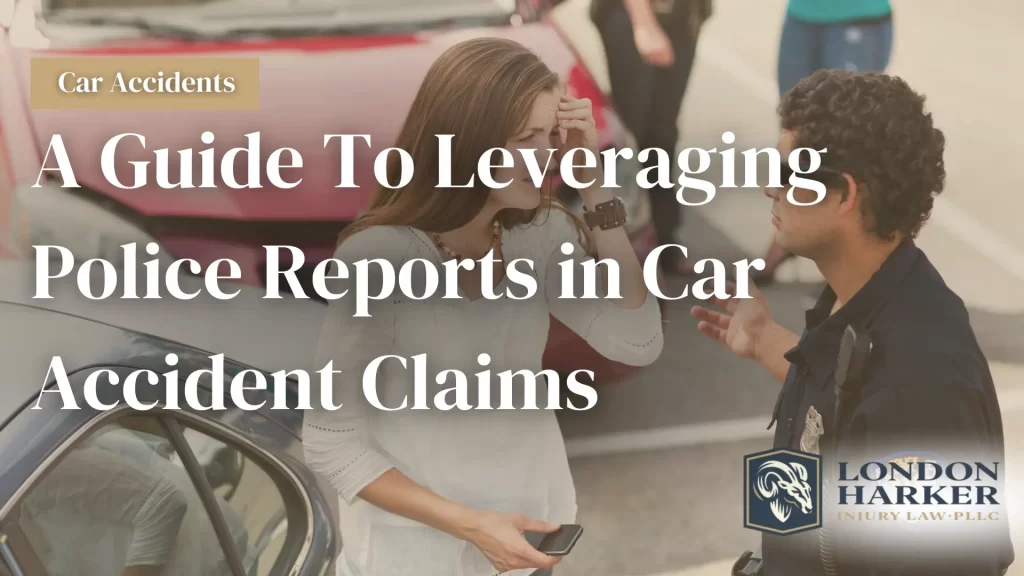
If you’ve been in a car accident in Utah, you might wonder if you need a police report to file an insurance claim. While it’s not always required by law, having a police report can be helpful when you’re trying to get money from your insurance company to pay for damages and injuries.
At London Harker Injury Law, our experienced Sandy car accident attorneys and Provo car accident attorneys understand how overwhelming the aftermath of a crash can be. When dealing with injuries and understanding the claims process, our law firm is dedicated to helping our clients every step of the way.
Do You Need a Police Report for an Insurance Claim in Utah?
In Utah, you’re not always required to file a police report after a car accident. But, if the accident caused any injuries, deaths, or more than $1,500 in property damage, you do need to report it to the police right away. Even if the law doesn’t require you to report the accident, it’s still a good idea because a police report can provide valuable evidence for your insurance claim.
Insurance companies always seek reasons to deny claims or pay as little as possible. Insurance adjusters use different evidence that is given to them to discern whether it falls under the insurance coverage. When you include a police report when you file a claim, it gives the insurance company an official record of what happened in the accident. This can make it easier for auto insurers to approve your claim and give you the money you need to cover your expenses.
What’s Included in a Police Report?
When the police arrive at the scene of an accident, they’ll do an investigation and put together a report that includes a lot of important information, such as:
- The date, time, and location of the accident
- The names, addresses, contact information, and driver’s license numbers of all the drivers and parties involved in an accident
- The insurance information for each driver
- Details about any injuries, deaths, or property damage caused by the accident
- Statements from witnesses who saw what happened
- Diagrams or photos of the accident scene and any damage to the vehicles
All of this information can be helpful when you’re trying to show how the accident occurred and who was at fault. The police report can also help you prove the extent of your damages and injuries, which is essential when negotiating with the insurance company. You can also show the police report when you are negotiating a settlement agreement.
How Do Police Investigate a Car Accident?
When the police arrive at an accident scene, they’ll start by ensuring everyone is safe and getting medical help for anyone injured. Then, they’ll begin their investigation. This usually involves:
- Talking to all the drivers and witnesses to get their side of the story by exchanging information
- Taking photos of the vehicle damage and any skid marks or debris on the road
- Making diagrams of the accident scene to show how the vehicles were positioned
- Checking for any traffic violations or signs of impairment, like alcohol or drug use
The police will put together a detailed report explaining what happened in the accident and who was at fault. If the police believe that one driver was responsible for causing the accident, they might issue a citation. Depending on the circumstances, they can even arrest you or the at-fault party for the car crash.
How to Get a Copy of a Police Report After an Accident
If you’ve been involved in a car accident in Utah, you’ll want to obtain a copy of the report as soon as possible. To do this, you can:
- Contact the police department responding to the accident and request a copy of the report. You may need to pay a small fee for this.
- Go to the Utah Department of Public Safety’s website and request a copy of the report online. There’s a $9 fee for this service.
- Ask your car accident lawyer to help you get a copy of the report. They can request it on your behalf and ensure you have all the documentation you need for your insurance claim.
Review the police report carefully to make sure all the information provided is accurate. If you notice any mistakes or missing details, let the police department know immediately so they can make corrections.
Using a Police Report to Determine Liability
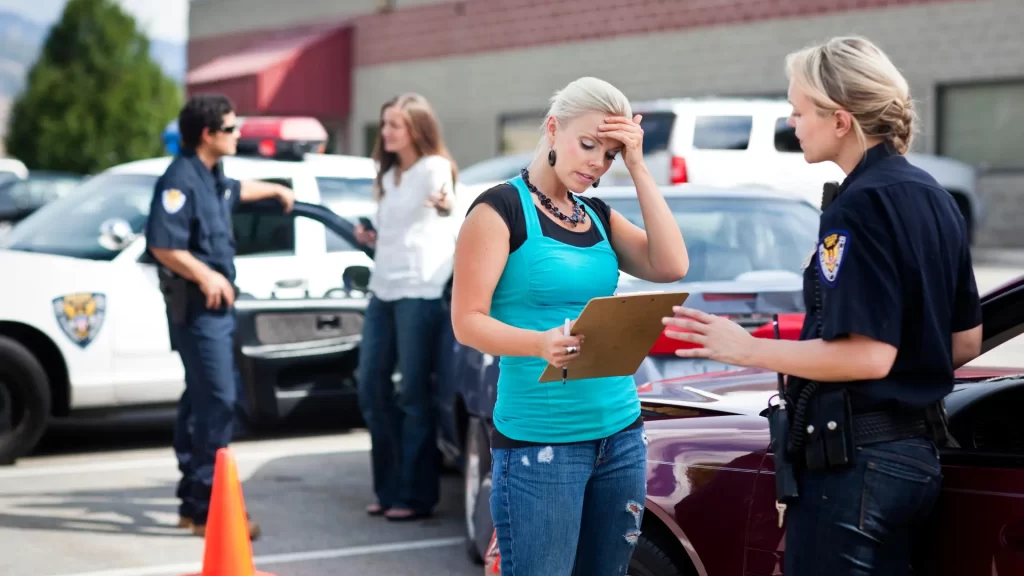 One of the most essential things a police report can do is help determine fault. This is critical when filing an insurance claim because Utah uses a “fault” system for car accidents. The driver who caused the accident pays for the damages and injuries through their insurance company.
One of the most essential things a police report can do is help determine fault. This is critical when filing an insurance claim because Utah uses a “fault” system for car accidents. The driver who caused the accident pays for the damages and injuries through their insurance company.
The police report can provide strong evidence of fault by showing things like:
- Which driver was issued a citation for a traffic violation
- Statements from witnesses who saw one driver running a red light or speeding
- Diagrams that show one vehicle rear-ending another or turning in front of oncoming traffic
If the police report clearly shows that the other driver was at fault, getting a fair settlement can be much easier. But even if the report isn’t conclusive, it can still provide valuable information.
Let London Harker Injury Law Help You Navigate the Claims Process
Dealing with the aftermath of a car accident can be stressful and overwhelming. More so if you’re trying to get money from the insurance company to pay for your medical bills and other expenses. That’s where the experienced car accident lawyers at London Harker Injury Law come in for our clients to get them the compensation they deserve.
Our Sandy personal injury attorneys and Provo personal injury attorneys know how to use police reports and other evidence to build strong cases. If you’ve been injured in an auto accident that wasn’t your fault, avoid trying to handle the insurance claim on your own. Contact us today at 77CARCRASH or online for a free consultation, and let us fight for your rights. From gathering evidence like police reports to negotiating with insurance companies, our experienced team is here to help. With London Harker Injury Law on your side, you can focus on healing while we handle the legal stuff of your personal injury case.
Related Posts:
What to Do After a Non-Fault Accident
